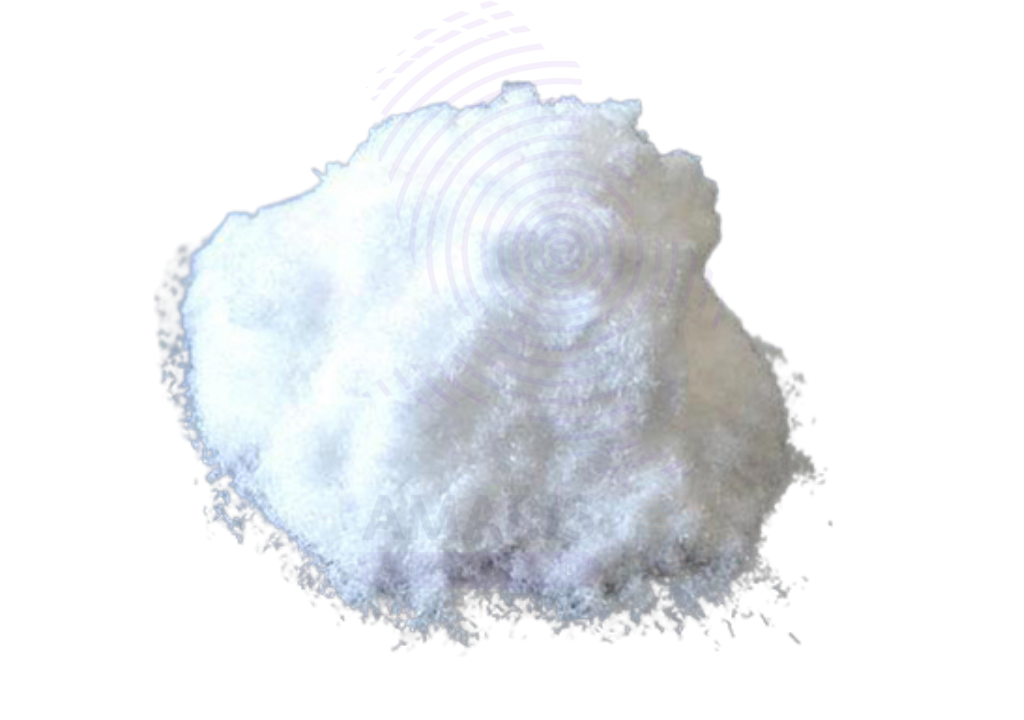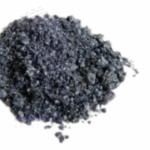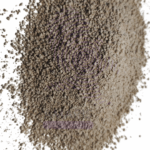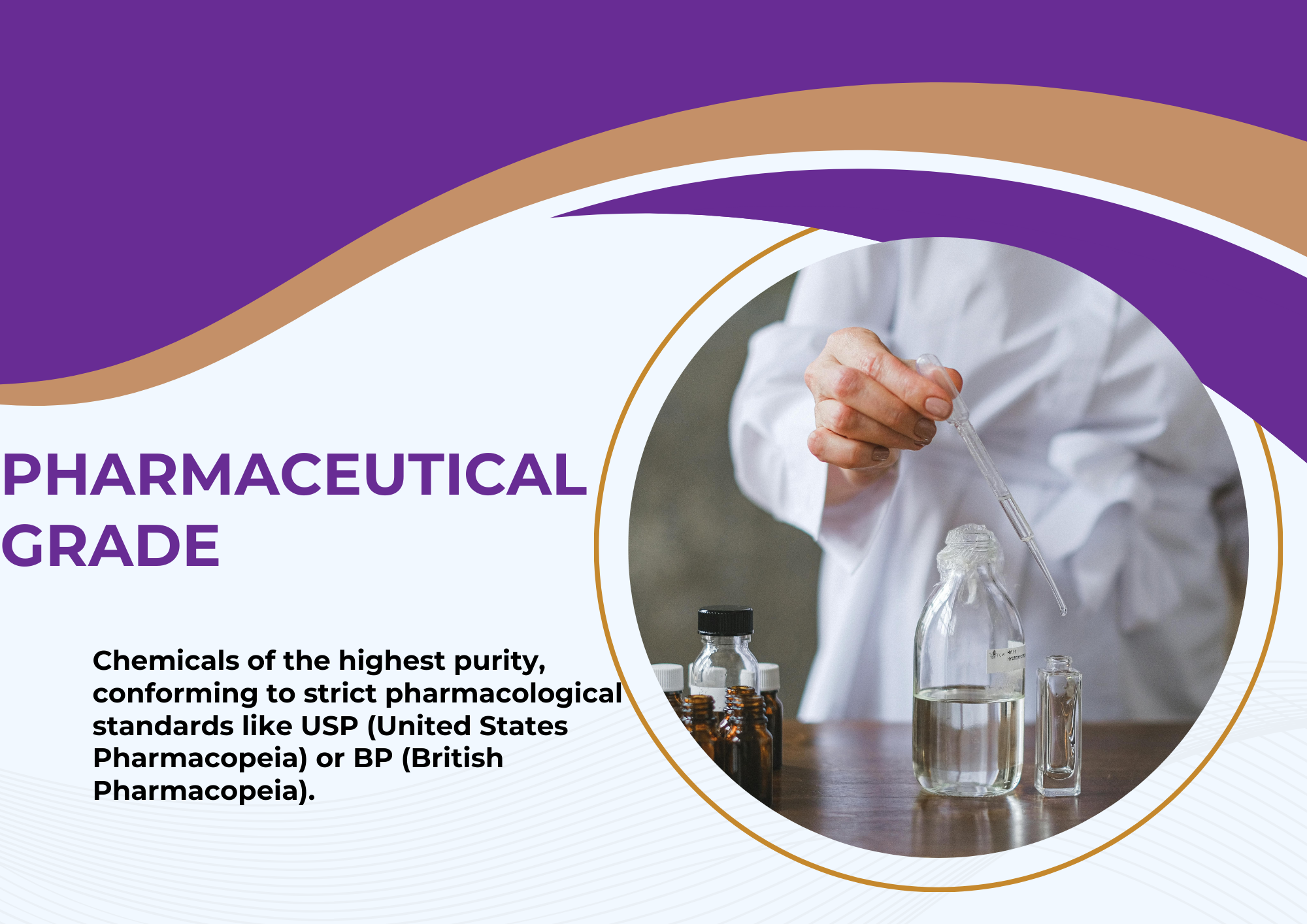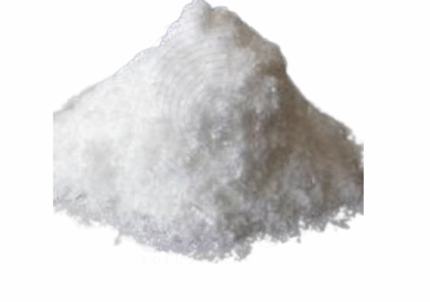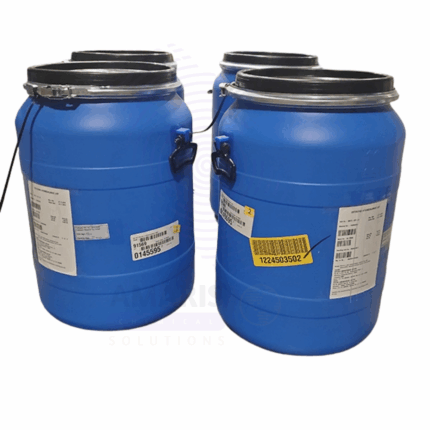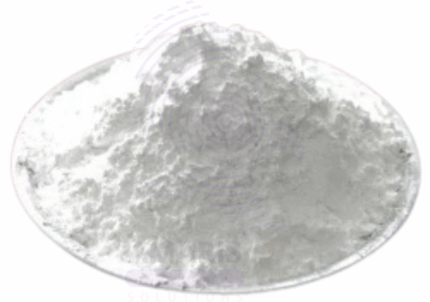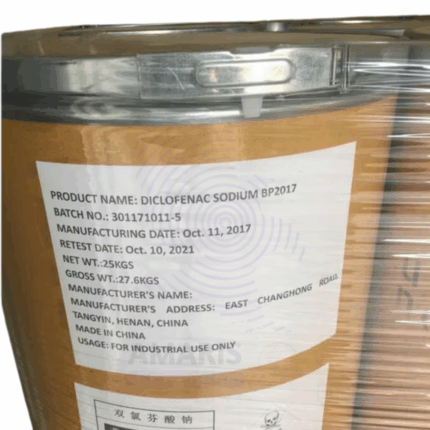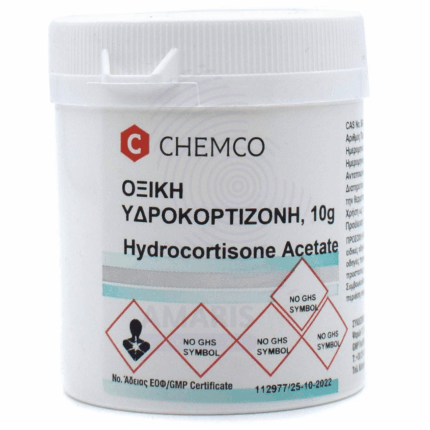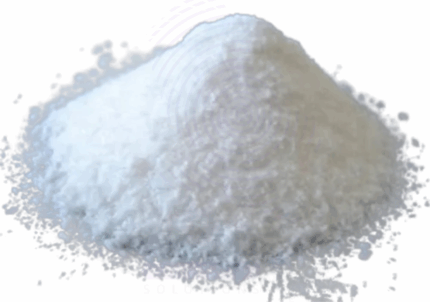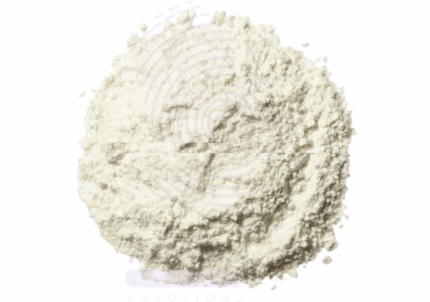Salicylic Acid BP
Salicylic Acid BP is a white, crystalline organic acid widely used in pharmaceuticals, cosmetics, and industrial applications. Known for its keratolytic, anti-inflammatory, and antiseptic properties, it is an essential ingredient in acne treatments, wart removers, and skin care formulations. The British Pharmacopoeia (BP) grade ensures high purity suitable for medicinal and cosmetic use.
Salicylic Acid BP
Primary Uses
- Pharmaceuticals
- Used topically to treat acne, psoriasis, dandruff, and other skin disorders due to its keratolytic and anti-inflammatory effects.
- Included in formulations for wart removal and callus treatment.
- Acts as a preservative and pH adjuster in various medicinal preparations.
- Cosmetics and Personal Care
- Incorporated in skincare products such as exfoliants, cleansers, and anti-dandruff shampoos.
- Used in formulations to reduce skin scaling and promote smooth skin texture.
- Industrial Applications
- Utilized in the synthesis of aspirin (acetylsalicylic acid) and other pharmaceuticals.
- Employed in the manufacture of dyes, fragrances, and flavoring agents.
Secondary Uses
- Food Industry
- Occasionally used as a food preservative and flavoring agent (regulated and limited).
- Chemical Research
- Used as a reagent and standard in analytical chemistry and research laboratories.
- Agriculture
- Investigated for use as a plant growth regulator and disease resistance enhancer.
1. Basic Identification Attributes
- Chemical Name (IUPAC): 2-Hydroxybenzoic acid
- Common/Trade Name: Salicylic Acid BP
- CAS Number: 69-72-7
- HS Code: 2918.15
- Synonyms: Ortho-hydroxybenzoic acid; beta hydroxy acid (BHA)
2. Physical & Chemical Properties
- Physical State: Crystalline powder
- Color & Odor: White or slightly off-white; odorless or faintly aromatic
- Melting Point: 158–161 °C
- Solubility: Slightly soluble in water; soluble in ethanol and ether
- pH: Slightly acidic in aqueous solution
3. Safety & Hazard Attributes
- GHS Classification: Irritant to skin and eyes
- Toxicity: Low to moderate; avoid ingestion and prolonged exposure
- Exposure Limits: Follow occupational safety guidelines
4. Storage & Handling Attributes
- Storage Conditions: Store in a cool, dry, well-ventilated area away from incompatible substances
- Container Type: Sealed, moisture-proof containers
- Shelf Life: Typically 2–3 years if stored properly
- Handling Precautions: Use gloves and eye protection; avoid dust inhalation
5. Regulatory & Compliance Attributes
- Complies with British Pharmacopoeia (BP) standards
- Approved for pharmaceutical and cosmetic use by regulatory agencies
6. Environmental & Health Impact
- Biodegradability: Readily biodegradable
- Ecotoxicity: Low to moderate; avoid release into waterways
- Bioaccumulation: Not significant
Safety Handling Precautions
- PPE Required: Gloves, goggles, and dust mask recommended
- Handling Guidelines: Use in well-ventilated areas; avoid inhaling dust and contact with skin or eyes
- Storage Measures: Keep containers tightly closed and stored in a dry environment
First Aid Measures
- Inhalation: Move to fresh air; seek medical attention if irritation develops
- Skin Contact: Wash with plenty of soap and water; seek medical advice if irritation persists
- Eye Contact: Rinse with water for at least 15 minutes; seek medical attention if irritation continues
- Ingestion: Rinse mouth; do not induce vomiting; get medical help immediately
Firefighting Measures
- Fire Hazards: Combustible solid; may emit toxic fumes when heated
- Extinguishing Media: Use dry chemical, foam, or CO₂
- Special Precautions: Use protective equipment and self-contained breathing apparatus
- Hazardous Combustion Products: Carbon oxides, phenolic compounds
Related products
Carbocisteine AJI 92
Cetirizine Dihydrochloride
Chlorpheniramine Maleate
Diclofenac Sodium BP
Hydrocortisone Acetate
Hydrocortisone Base BP 93 Micro
Miconazole Nitrate BP
Miconazole Nitrate BP is a high-purity, pharmaceutical-grade antifungal agent conforming to British Pharmacopoeia (BP) specifications. It is widely used in the formulation of topical and oral pharmaceutical products for the treatment of fungal infections caused by dermatophytes and yeasts, including Candida species. Miconazole Nitrate functions by inhibiting the biosynthesis of ergosterol, a vital component of fungal cell membranes, leading to cell death.
This white to off-white crystalline powder is highly effective and exhibits broad-spectrum antifungal and some antibacterial activity. It is commonly utilized in creams, ointments, powders, and gel formulations.


 Preservatives(food)
Preservatives(food) Flavor Enhancers
Flavor Enhancers Acidulants
Acidulants Sweeteners
Sweeteners Antioxidants
Antioxidants Colorants(food)
Colorants(food) Nutraceutical Ingredients (food)
Nutraceutical Ingredients (food) Nutrient Supplements
Nutrient Supplements Emulsifiers
Emulsifiers
 Collectors
Collectors Dust Suppressants
Dust Suppressants Explosives and Blasting Agents
Explosives and Blasting Agents Flocculants and Coagulants
Flocculants and Coagulants Frothers
Frothers Leaching Agents
Leaching Agents pH Modifiers
pH Modifiers Precious Metal Extraction Agents
Precious Metal Extraction Agents
 Antioxidants(plastic)
Antioxidants(plastic) Colorants (Pigments, Dyes)
Colorants (Pigments, Dyes) Fillers and Reinforcements
Fillers and Reinforcements Flame Retardants
Flame Retardants Monomers
Monomers Plasticizers
Plasticizers Polymerization Initiators
Polymerization Initiators Stabilizers (UV, Heat)
Stabilizers (UV, Heat)
 Antifoaming Agents
Antifoaming Agents Chelating Agents
Chelating Agents Coagulants and Flocculants
Coagulants and Flocculants Corrosion Inhibitors
Corrosion Inhibitors Disinfectants and Biocides
Disinfectants and Biocides Oxidizing Agents
Oxidizing Agents pH Adjusters
pH Adjusters Scale Inhibitors( water)
Scale Inhibitors( water)
 Antioxidants(cosmetic)
Antioxidants(cosmetic) Emollients
Emollients Fragrances and Essential Oils
Fragrances and Essential Oils Humectants
Humectants Preservatives
Preservatives Surfactants(cosmetic)
Surfactants(cosmetic) Thickeners
Thickeners UV Filters
UV Filters
 Fertilizers
Fertilizers Soil Conditioners
Soil Conditioners Plant Growth Regulators
Plant Growth Regulators Animal Feed Additives
Animal Feed Additives Biostimulants
Biostimulants Pesticides (Herbicides, Insecticides, Fungicides)
Pesticides (Herbicides, Insecticides, Fungicides)
 Active Pharmaceutical Ingredients (APIs)
Active Pharmaceutical Ingredients (APIs) Excipients
Excipients Solvents(pharmaceutical)
Solvents(pharmaceutical) Antibiotics
Antibiotics Antiseptics and Disinfectants
Antiseptics and Disinfectants Vaccine Adjuvants
Vaccine Adjuvants Nutraceutical Ingredients (pharmaceutical)
Nutraceutical Ingredients (pharmaceutical) Analgesics & Antipyretics
Analgesics & Antipyretics
 Analytical Reagents
Analytical Reagents Solvents(lab)
Solvents(lab) Chromatography Chemicals
Chromatography Chemicals Spectroscopy Reagents
Spectroscopy Reagents microbiology-and-cell-culture-reagents
microbiology-and-cell-culture-reagents Molecular Biology Reagents
Molecular Biology Reagents Biochemical Reagents
Biochemical Reagents Inorganic and Organic Standards
Inorganic and Organic Standards Laboratory Safety Chemicals
Laboratory Safety Chemicals Specialty Laboratory Chemicals(Special Laboratory Equipment)
Specialty Laboratory Chemicals(Special Laboratory Equipment)
 Demulsifiers
Demulsifiers Hydraulic Fracturing Fluids
Hydraulic Fracturing Fluids Scale Inhibitors(oil)
Scale Inhibitors(oil) Surfactants(oil)
Surfactants(oil) Drilling Fluids
Drilling Fluids
 Dyes and Pigments
Dyes and Pigments Bleaching Agents
Bleaching Agents Softening Agents
Softening Agents Finishing Agents
Finishing Agents Antistatic Agents
Antistatic Agents
 Admixtures
Admixtures Waterproofing Agents
Waterproofing Agents Sealants and Adhesives
Sealants and Adhesives Curing Compounds
Curing Compounds Concrete Repair Chemicals
Concrete Repair Chemicals Anti-Corrosion Coatings
Anti-Corrosion Coatings
 Surfactants(cleaning)
Surfactants(cleaning) Builders
Builders Enzymes
Enzymes Solvents (Cleaning)
Solvents (Cleaning) Fragrances
Fragrances
 Electronic Chemicals
Electronic Chemicals Catalysts
Catalysts Lubricants
Lubricants Photographic Chemicals
Photographic Chemicals Refrigerants
Refrigerants Automotive chemicals
Automotive chemicals Pyrotechnic Chemicals
Pyrotechnic Chemicals
 Biodegradable Surfactants
Biodegradable Surfactants Bio-based Solvents
Bio-based Solvents Renewable Polymers
Renewable Polymers Carbon Capture Chemicals
Carbon Capture Chemicals Wastewater Treatment Chemicals
Wastewater Treatment Chemicals
 Pigments
Pigments Solvents(paint)
Solvents(paint) Specialty Coatings
Specialty Coatings Binders/Resins
Binders/Resins Additives
Additives Driers
Driers Anti-Corrosion Agents
Anti-Corrosion Agents Functional Coatings
Functional Coatings Application-Specific Coatings
Application-Specific Coatings
 Fresh Herbs
Fresh Herbs Ground Spices
Ground Spices Whole Spices
Whole Spices Spice Blends
Spice Blends Dried Herbs
Dried Herbs
 Leavening Agents
Leavening Agents Dough Conditioners
Dough Conditioners Flour Treatments
Flour Treatments Fat Replacers
Fat Replacers Decoratives
Decoratives Preservatives(baking)
Preservatives(baking)
 Plasticizers & Softeners
Plasticizers & Softeners Reinforcing Agents
Reinforcing Agents Adhesion Promoters
Adhesion Promoters Vulcanizing Agents
Vulcanizing Agents Antidegradants
Antidegradants Blowing Agents
Blowing Agents Fillers & Extenders
Fillers & Extenders Accelerators & Retarders
Accelerators & Retarders